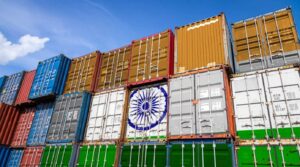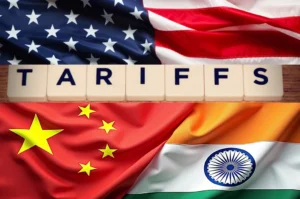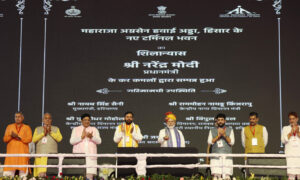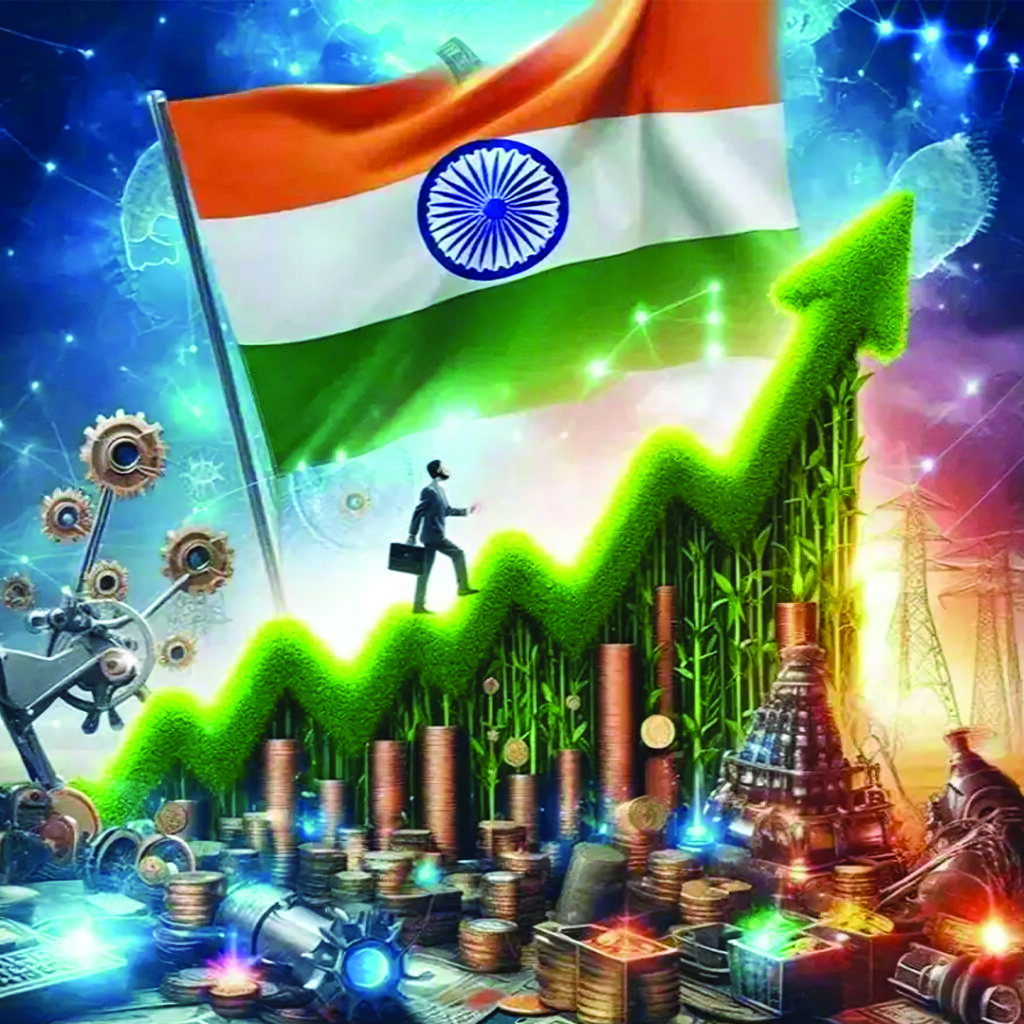- India’s exports rise slightly in March amid global trade challenges
- Tariff pause triggers spike in US-bound freight rates from India
- PM lays foundation for ₹410 crore Hisar airport terminal
- Uber expands courier services with larger vehicle deliveries
- BLR Cargo and Shell boost truck flow with digital management system
- China’s March exports jump 12.4% amid pre-tariff shipping rush
- DP World expands India-UAE trade with new logistics hub launch
- Noida Airport cargo terminal first phase ready to boost global trade
- Dushyant Mulani: Architect of logistics evolution
- Sreeni Nair: The silent architect of lasting impact
Author: Cargo Insights
Cargo Insights, a dynamic trade media, committed to delivering comprehensive coverage of advancements and trends within the logistics sector. We will connect clients to their target audience through our digital platforms that will enable them to expand globally in this digital era.
India’s manufacturing dreams hinge on addressing logistics and infrastructure challenges. Streamlined processes, better infrastructure, skilled labour, export focus, and transparency can propel the nation to global leadership. Insights from industry leader V. Chandra Kumar show the way. India stands at a critical juncture, ready to leverage global supply chain shifts and rising domestic demand. V. Chandra Kumar, Founder and Managing Director, Active Freight Logistics, highlights that initiatives like “Make in India” have laid a strong foundation. However, without addressing key hurdles—primarily in logistics and infrastructure—India risks losing its edge to global competitors like China and Vietnam. Efficient logistics is the…
Global trade is at a pivotal juncture where import tariffs dictate economic strategies, reshape supply chains, and redefine logistics efficiency. While these tariffs safeguard domestic industries, they also escalate costs, disrupt freight movement, and pose challenges for exporters and supply chain professionals. This edition delves into the far-reaching implications of tariff policies on logistics, warehousing, and trade resilience, bringing together expert perspectives on mitigating risks and optimising operations in a tariff-driven landscape. “Changing import tariffs in India hits logistics hard. You’re looking at increased transport costs and more complex supply chains. Higher tariffs mean higher import prices, delays, and a…
Tariffs play a crucial role in shaping economies, offering protection to domestic industries while potentially increasing costs for consumers. While they can safeguard jobs and foster innovation, they may also disrupt global trade and escalate economic tensions between nations. Tariffs, taxes levied on imported goods, represent a complex economic tool with both potential benefits and significant drawbacks. The decision to implement or increase tariffs requires careful balance, weighing the immediate advantages against the long-term consequences. Protecting domestic industry One of the primary arguments in favour of tariffs centres on the protection of domestic industries. Newly established or “infant” industries, struggling…
Dr. Joshua Ebenezer details India’s revised import origin rules, increasing importer burden for FTA claims and compliance. The Indian government has recently made a critical change to its Rules of Origin framework under Free Trade Agreements (FTAs). Through an amendment to Section 28DA of the Customs Act, 1962, the term ‘Certificate of Origin’ (CoO) has been replaced with ‘Proof of Origin’. While this might seem like a minor wording change, it carries major implications for importers and international trade compliance. Previously, FTAs required only a CoO for preferential duty. Now, Customs demands additional proof likeinvoices, production records, cost sheets, or other supporting documents to verify origin beyond the…
The 3rd CargoNXT Conference & Recognitions, in partnership with the Services Export Promotion Council (SEPC), Ministry of Commerce and Industry, is set to take place on April 25, 2025, at The Orchid Hotel, Vile Parle (E), Mumbai. This edition’s theme, “Future-Ready Logistics: Driving India’s Global Trade Ecosystem,” underscores the critical role of logistics in propelling India towards its ambitious vision of a Viksit Bharat by 2047. Join us on April 25, 2025, at The Orchid Hotel, Mumbai, to be a part of this transformative journey! India’s logistics sector, valued at $250 billion in 2023, is projected to grow at a…
India’s logistical evolution, fuelled by digital adoption and infrastructure enhancements, positions it as a significant global trade player, emphasising sustainable practices and strategic innovation. Logistics needs to be simple enough to solve complex issues Global Adaptation According to Abbas Panju, Managing Director, India, at UPS Express, global logistics success relies on simplifying processes for small and medium-sized businesses (SMBs). “Ease of doing business is a huge advantage in global trade,” he asserts, highlighting the need to streamline border clearances, compliance, and specialized product requirements. He emphasises that innovation is paramount to simplifying logistics and enabling SMBs to participate in global…
The Lok Sabha’s Bills of Lading, 2025, modernises India’s maritime laws, introducing e-BLs for efficiency. This shift, aligning with global trends, promises reduced paperwork, enhanced security, and streamlined trade. e-BL revolutionizes India’s maritime trade, boosting efficiency and global competitiveness As Kale Logistics Solutions consistently provides informative articles, this piece, penned by Umesh Kurlekar, Senior Consultant, Maritime and Port IT Strategy, delves into the pivotal role of the e-Bill of Lading. Legal overhaul In a landmark decision, the Indian government has enacted the Bills of Lading Bill, 2025, effectively replacing the antiquated Indian Bills of Lading Act of 1856. This…
AI-driven logistics, improved connectivity via IoT and partnerships, sustainable practices, Gati Shakti’s transformative potential, and technological integration are crucial for optimal supply chain efficiency in India’s evolving logistics sector. AI, connectivity, sustainability, Gati Shakti, and tech integration drive India’s logistics growth Mahendra Shah, CMD, V-Trans, emphasises the necessity of adopting predictive analytics-driven logistics planning from global markets. He highlights the use of AI and big data to optimise inventory and enhance last-mile efficiency. “By integrating AI-driven demand forecasting, India’s logistics sector can reduce transit delays,” Shah states. Conversely, he praises India’s Unified Logistics Interface Platform (ULIP) under the National Logistics…
India’s logistics sector, vital for economic growth, is undergoing a significant transformation, addressing challenges and leveraging opportunities for enhanced global trade. Building a resilient logistics ecosystem requires infrastructure development, digital transformation, and sustainability Anil K. Mishra, National Logistics Head, India, Pladis Global, highlights the Indian logistics industry’s projected growth, reaching USD 357.3 billion by 2030. He notes that while urbanisation and infrastructure development drive this expansion, persistent challenges like inadequate infrastructure, regulatory hurdles, and rising fuel costs hinder its potential. “Although technological advancements and improved infrastructure offer chances to enhance operational efficiency and reduce costs, persistent issues remain,” Mishra observes,…
Dive into India’s logistics leap: where seamless connections meet tech-driven supply chains, Gati Shakti’s transformative power, and resilient trade visions ignite national economic growth. Logistics is currently the sunrise sector of India Prof. (Dr.) Manoj Choudhary, Vice Chancellor, Gati Shakti Vishwavidyalaya, emphasises balanced first and last-mile connectivity. “Logistics is complete only when a person, an item, or a parcel is picked up from one place and delivered seamlessly,” he notes. India’s focus on multimodal logistics and infrastructure development, including railways, highways, and ports, is crucial. “India is putting significant emphasis on improving it,” he states, highlighting the coordinated use of…
India’s logistics sector, poised for a transformative leap, is embracing cutting-edge technologies and sustainable practices to forge a robust, globally competitive trade ecosystem. India is shaping a logistics network that is both efficient and sustainable Saiba Suri, Country Customer Fulfilment Manager, IKEA India, advocates for the swift adoption of Logistics 4.0, emphasising the transformative power of AI, data analytics, and automation. “These technologies change the way supply chains operate globally,” she asserts, highlighting their potential to optimise routes, predict demand, and slash costs. She praises India’s strides in warehousing, particularly the focus on sustainable practices and certifications like LEED and…
Rashul Jain, Global Practice Head, Logistics, Rail & Maritime, Tech Mahindra, offers valuable insights into the future of India’s logistics sector, emphasising the need for strategic adoption of global best practices and technological advancements to achieve the nation’s 2047 vision. Developing a multi-modal transportation network is crucial to reduce dependence on any single mode India’s ambitious 2047 vision necessitates a strategically evolved logistics landscape. Rashul Jain, provides crucial insights into the critical shifts required to propel India’s logistics sector forward, exploring the balance between adopting global best practices and fostering innovative domestic solutions. Multimodality & global presence “While significant progress…
IMPORTANT PAGES
ADVERTISING OPTIONS
Company name: SDDB Branding Solutions Private Limited
CIN: U74110DL2016PTC307365
GSTIN: 06AABCU9994R1Z5
Subscribe to Updates
Get the latest creative news from Cargo Insights about logistics news, transport news and government logistics.


















